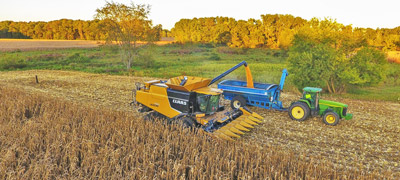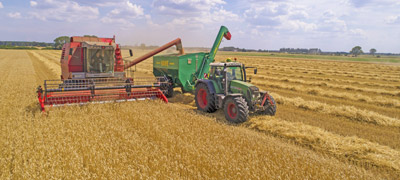Friedrick Wilhelm Tornow

Immigrants Approaching Statue of Liberty 11
September of 1866 Friedrick Wilhelm Tornow and Henriette Sophia Wenzel Tornow emigrated to America from Pommern. They had married in Pommern in October 1864. They were typical of German immigrates in that period. After a short stay in Chicago they settled on a farm in Bureau county Illinois. In 1891 Friedrick purchased a 160 acre farm at Walnut in Bureau county Illinois. The lower midwest including Illinois and Wisconsin have terrain nearly indistinguishable from the Mittelgebirge belt that runs across central Germany and forms the bulk of Germany’s topography. The land is flat to moderate rolling hills. The North Central Plain of Europe and the American mid-west have very productive soil. Illinois’ climate is typically continental with cold winters, warm summers, and frequent short fluctuations in temperature, humidity, cloudiness, and wind direction. Average annual rainfall is fairly similar in both countries. In Pommern, the summers are comfortable and partly cloudy and the winters are very cold, windy, and mostly cloudy. German farmer immigrates would have noted the similarities in farmland and climate.
Harvest in midwest 12
Harvest in Germany 13
Friedrick and Henriette both became naturalized citizens in September 26, 1876. His naturalization papers included a signed statement that he renounced all alligence to the King of Prussia. 02
Friedrick's naturalization papers 03
The introduction of affordable steamship passage in the 1830's and inexpensive rail travel in the 1850's to port cities made emigration to America more affordable, more attainable for German farmers and others seeking a new life. 05
The potato blight in 1852 occurred just 15 years before Friedrick left Pommern for America. Did that weigh in his and others decision to leave Pommern? In 1862 Prussia was the first country in Europe to start universal conscription for the army. Prussian conscription required three years of active duty. The Prussia draft was not popular. Friedrick Tornow was 34 years old when this started. Was he drafted? Did he serve in the Prussian army? The Seven Week War was fought in the year that he left Pommern. He was 38 at that time. 07
Although conditions in the German states were not as bad as in Ireland, crop failures, inheritance laws, high rents, high prices, and the effects of the industrial revolution led to widespread poverty and suffering. Relatives and friends who emigrated first would write back and encourage others to follow. This led to "chain migrations" and group settlements. Fairly well-to-do farmers who saw a bleak future, poor ones with no future, paupers whom the authorities often paid to leave, revolutionaries after 1848, and many artisans, professionals, and some adventurers made up the spectrum of the 1840s and 1850s. 09



